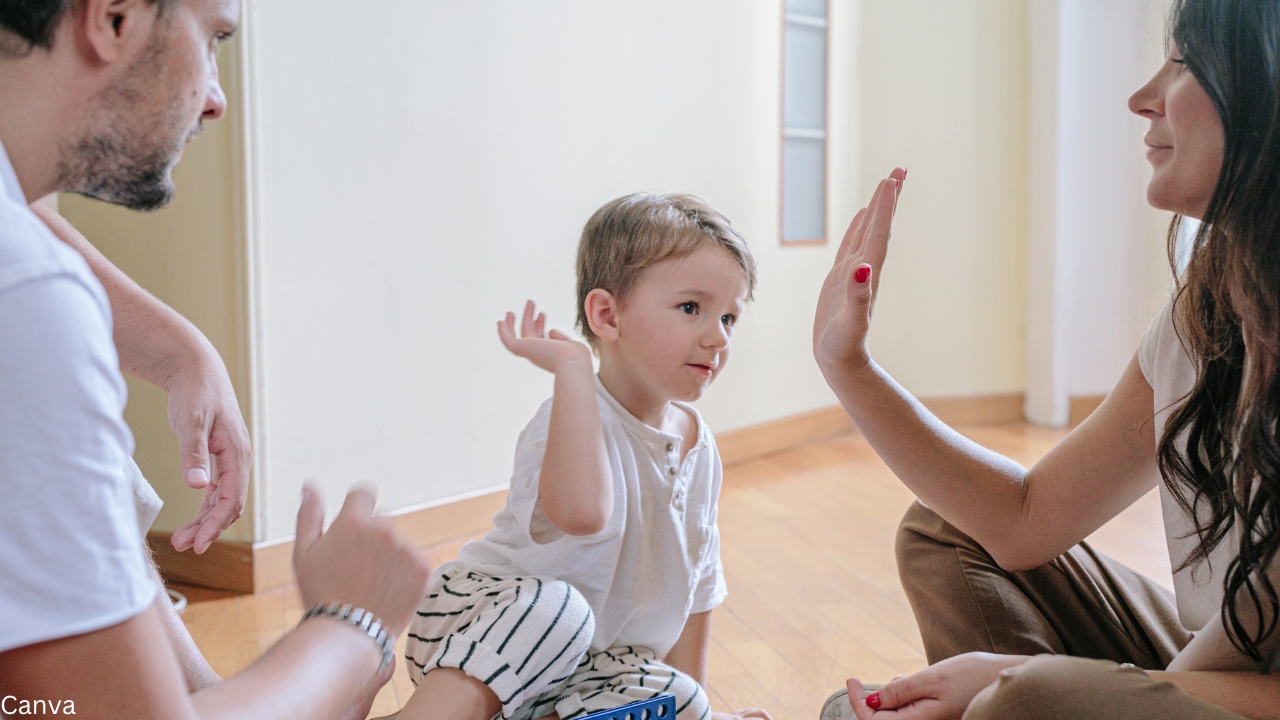26 metodi genitoriali della vecchia scuola raccomandati dagli esperti
Parenting can be a wild ride, don’t you think? While modern techniques are all the rage, sometimes the good old ways are just what we need.
In this blog, we’re going on a little journey down memory lane to explore some old-school parenting methods that are still highly recommended by experts today.
Questi metodi potevano essere usati dai nostri nonni, ma hanno superato la prova del tempo e ci insegnano ancora qualcosa di prezioso.
1. Cene domenicali in famiglia

Every Sunday, my grandparents would gather all the family for a big, hearty dinner. It’s more than just about food, though, isn’t it? It’s about connection. Sitting around the table, sharing stories of the week, and just being present with one another is something we need more than ever.
Sunday family dinners can be a sanctuary from the chaos of the week. It’s not about being fancy or extravagant. It’s about the warmth of being together, listening, and having those deeper conversations that we often push aside during weekdays. Think of it as a weekly ritual that strengthens family bonds in a way nothing else can.
With everyone’s schedules becoming more hectic by the day, setting aside this special time lets children feel valued and heard. So, whip up your favorite dishes or try something new; the aim is to enjoy each other’s company. You’ll be surprised how much these moments are cherished and remembered.
2. Storie della buonanotte

Remember the magic of bedtime stories? It’s a tradition that many of us grew up with, and it’s one worth passing down. Curling up with a good book and letting your imagination run wild was the highlight of my evenings as a child.
Reading to your kids before bed isn’t just a fun activity. It’s an intimate moment that fosters closeness and cultivates a love for reading. These stories spark creativity and imagination, providing a gateway to worlds where anything is possible.
Choose tales that inspire, teach a lesson, or simply entertain. Let your child’s interests guide the stories, and watch their eyes light up with wonder. Those precious moments snuggled together can become the cornerstone of cherished childhood memories.
3. Apprendimento attraverso il gioco
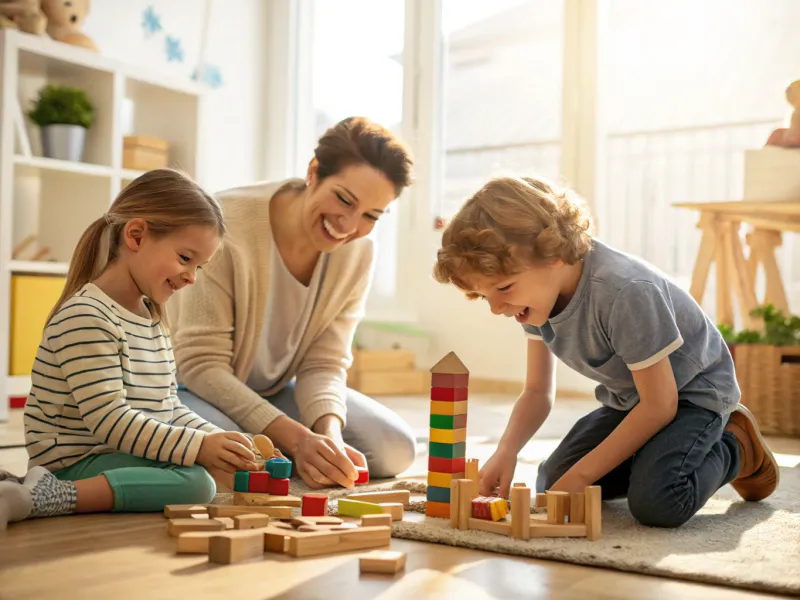
Il gioco è una parte fondamentale dell'apprendimento e offre ai bambini la possibilità di esplorare, immaginare e capire il mondo che li circonda. I giocattoli tradizionali incoraggiano la creatività e la risoluzione dei problemi.
Parents observe their children developing cognitive and social skills through play, which also serves as a wonderful bonding opportunity. It’s a strategy that supports emotional and intellectual growth.
4. Le faccende come lezioni
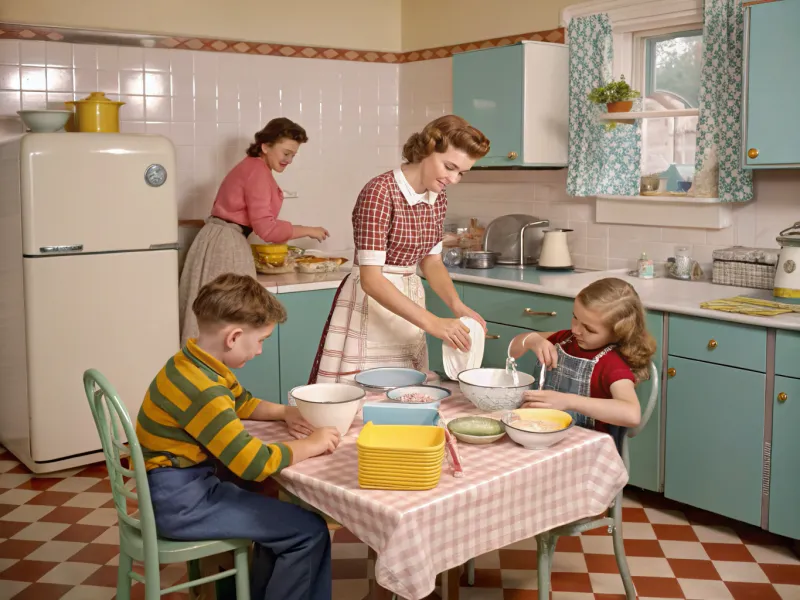
Coinvolgendo i bambini nei lavori domestici, insegniamo loro la responsabilità e l'importanza di contribuire all'unità familiare.
Quando i bambini partecipano alle faccende domestiche, imparano abilità preziose che serviranno loro ben oltre gli anni dell'infanzia.
Gli esperti raccomandano di svolgere lavori domestici adatti all'età per creare fiducia e insegnare le abilità della vita. Dal rifare il letto all'aiutare con i piatti, questi compiti favoriscono l'indipendenza e l'autodisciplina. In questo modo, i bambini imparano anche l'arte del lavoro di squadra e della cooperazione, abilità essenziali in tutti gli ambiti della vita.
5. Gioco all'aperto

Do you recall spending endless hours playing outside until the streetlights came on? That’s where adventure and imagination truly came alive. There’s something magical about unstructured play that can’t be replicated indoors.
Encouraging kids to play outside isn’t just about keeping them entertained. It’s about letting them explore their environment, build physical strength, and develop social skills. The freedom to run, jump, and laugh without constraints is invaluable.
It nurtures curiosity, fosters creativity, and is a fantastic way for kids to learn problem-solving skills naturally. Plus, it’s an excellent opportunity for them to interact with peers and learn the dynamics of teamwork and negotiation. So, let the kids get dirty, meet new friends, and discover the world around them. Fresh air and natural surroundings are the best backdrops for childhood adventures.
6. Serata di gioco in famiglia

These gatherings can be a break from our digital screens, offering a chance to bond and connect through laughter and friendly competition. Whether it’s a game of Monopoly or charades, the goal is to engage with each other in a fun, relaxed setting.
Experts advocate for game nights as a tool for social development. They encourage communication, critical thinking, and teamwork. Plus, they’re a fantastic way to unwind and destress as a family. Choose games that everyone will enjoy, and perhaps even try something new.
Ciò che conta è la qualità del tempo trascorso insieme, rafforzando i legami familiari a ogni lancio di dadi o di carte.
7. Enfasi sulle buone maniere

Ricordate che vi hanno insegnato a dire "per favore" e "grazie" o a tenere la porta agli altri? L'insegnamento delle buone maniere riguarda il rispetto e la gentilezza.
I bambini che imparano presto le buone maniere crescono comprendendo l'importanza di trattare gli altri con riguardo. Pone le basi per interazioni sociali positive e crea fiducia in vari contesti.
Experts suggest that instilling manners helps children navigate social scenarios more effectively. It’s not just about etiquette; it’s about fostering empathy and understanding. Teaching manners doesn’t have to be rigid or severe. It can be a fun and engaging process through role-playing or gentle reminders. The goal is to create a respectful and harmonious environment where everyone feels valued and acknowledged.
8. Tempo di schermo limitato

Growing up, screen time was a privilege, not a right. Limiting screen time isn’t about depriving kids of entertainment–it’s about encouraging them to engage with the world around them.
In today’s digital era, it’s easy to let screens take over, but setting boundaries is crucial. Experts highlight the importance of balancing screen time with other activities that promote physical, mental, and emotional well-being.
By restricting screen usage, children are encouraged to explore hobbies, spend time outdoors, and nurture real-life relationships. It’s all about moderation and making sure technology complements, rather than dominates, family life. With clear boundaries, kids learn to appreciate the value of diverse activities, leading to a more balanced upbringing.
9. Rispetto per gli anziani
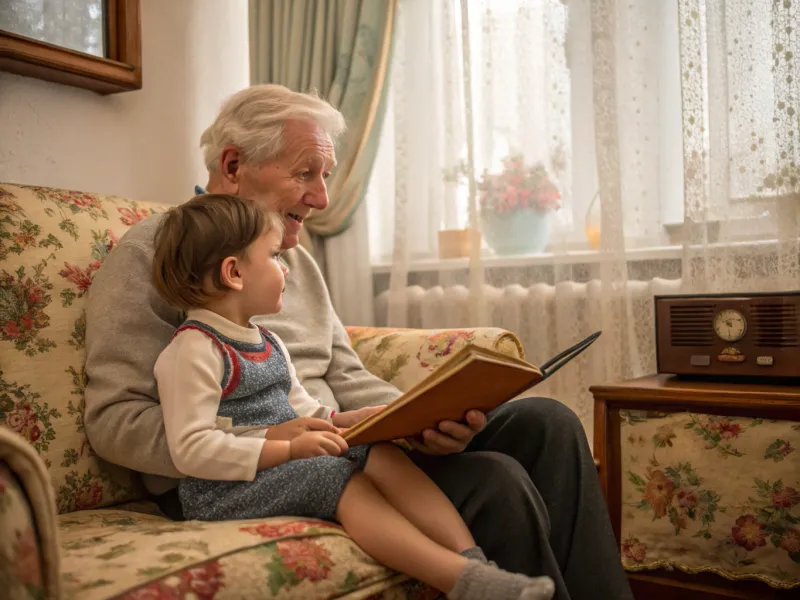
Nella mia famiglia il rispetto degli anziani non era negoziabile. Si trattava di ascoltare, valorizzare le loro parole e imparare dalle loro esperienze. Questo rispetto è una pietra miliare di molte culture e ha un valore immenso ancora oggi.
Teaching children to respect their elders instills humility and recognition of the wisdom that comes with age. It’s about understanding that older generations have much to offer in terms of life lessons and perspectives.
Gli esperti affermano che il rispetto degli anziani può favorire l'empatia e approfondire i legami familiari. Questa pratica non solo arricchisce la loro comprensione, ma aiuta anche a preservare la storia e le tradizioni familiari, creando un senso di continuità e di appartenenza.
10. Pasti fatti in casa

There’s something special about a homemade meal, isn’t there? The aroma wafting from the kitchen, the warmth of a dish crafted with love—it’s an experience that goes beyond mere sustenance.
Preparing meals at home allows families to bond over shared tasks and enjoy the fruits of their labor together. It’s a chance to teach children about nutrition, cooking skills, and the joy of sharing food.
Experts advocate for homemade meals as a way to promote healthy eating habits and family togetherness. It’s not just about the food–it’s about the conversations and laughter that happen around the dining table.
11. Incoraggiare la lettura
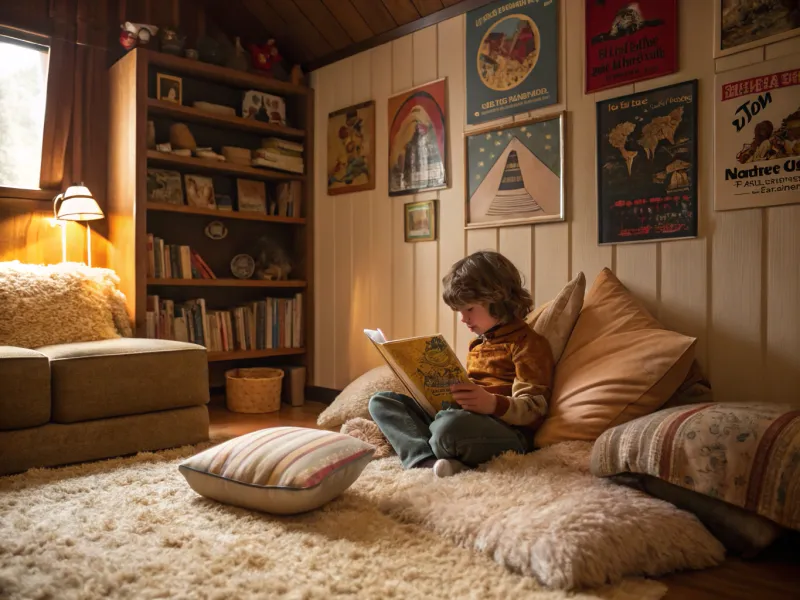
I libri sono stati per me una porta verso infinite avventure da bambina. Incoraggiare l'amore per la lettura apre ai bambini un mondo di immaginazione e conoscenza.
Reading isn’t just an academic exercise; it’s a delightful pastime that can be both entertaining and educational. From captivating stories to informative texts, books offer a wealth of benefits.
It’s a serene escape from the hustle and bustle of daily life, providing children with mental stimulation and relaxation. Encourage reading by introducing a variety of genres and letting kids choose what interests them.
Create angoli accoglienti per la lettura e condividete storie insieme per renderla un'attività cara. In un mondo di schermi, perdersi in un libro è un dono prezioso.
12. Passeggiate e colloqui
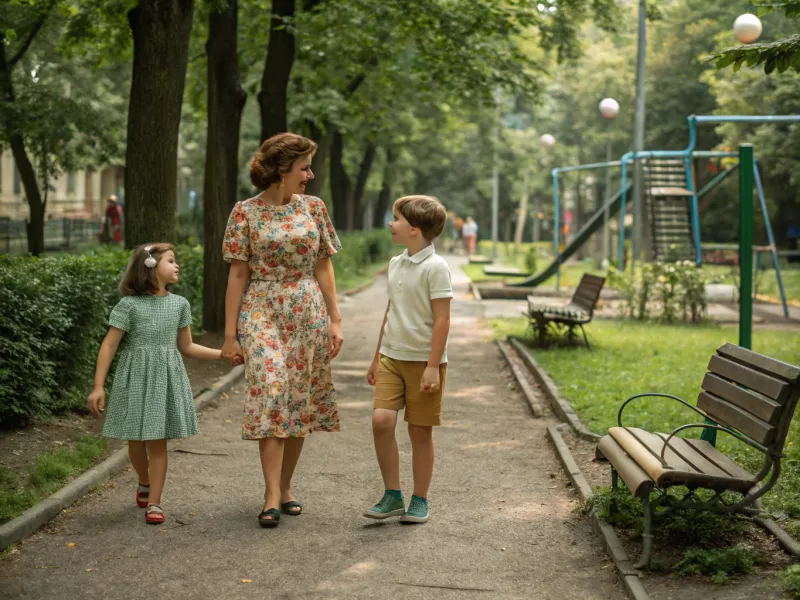
Walking together offers a relaxed setting where children feel comfortable expressing thoughts and feelings. It’s a wonderful way to connect and enjoy each other’s company without distractions.
Experts recommend walks as an opportunity for open dialogue and physical activity. It’s a chance to unplug and engage with your surroundings, fostering both mental and physical well-being. Whether it’s a stroll through the park or a hike in nature, these moments encourage family bonding and reflection.
So, lace up your sneakers and take a walk—it’s the perfect backdrop for heart-to-heart talks.
13. Risparmiare per il futuro
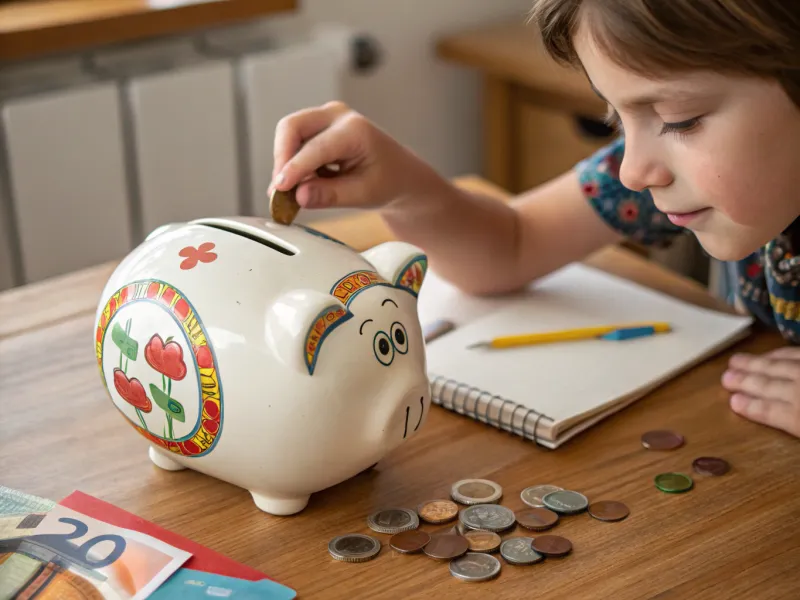
Il concetto di risparmio mi è stato inculcato fin da piccola. Ricordo l'emozione di mettere le monete nel mio salvadanaio e di vederlo riempirsi.
Teaching children about saving money helps them understand the value of hard work and delayed gratification. It’s about setting goals and building a foundation for financial responsibility.
It’s about nurturing a mindset that prioritizes thoughtful spending and planning. Make saving fun for kids by using visual aids like charts or jars that track their progress.
This practice not only equips them with essential life skills but also fosters a sense of accomplishment as they watch their savings grow. It’s never too early to start preparing children for a financially secure future.
14. Apprendere attraverso la natura
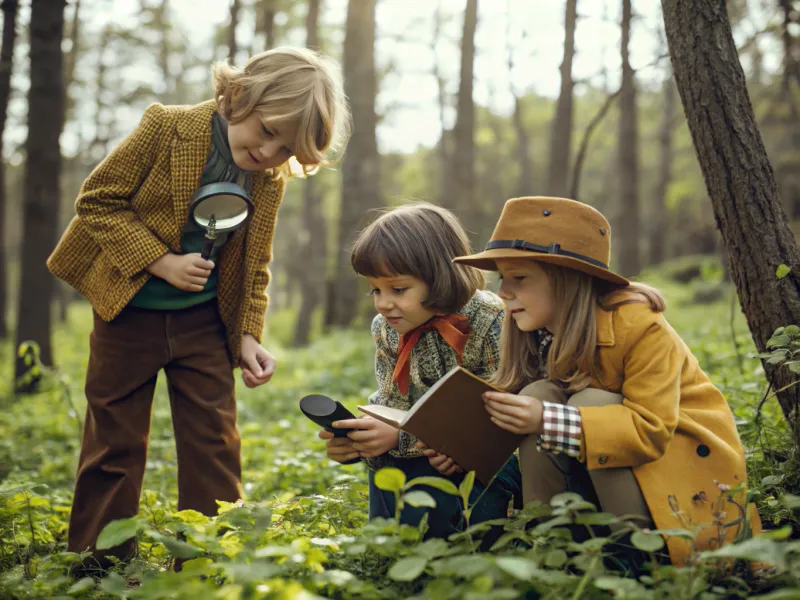
L'apprendimento attraverso la natura offre ai bambini esperienze pratiche che sono al tempo stesso educative e stimolanti. Incoraggia la curiosità e un più profondo apprezzamento per l'ambiente.
Gli esperti sottolineano i benefici dell'apprendimento all'aperto per lo sviluppo cognitivo e la creatività. La natura offre infinite opportunità di esplorazione e scoperta.
Encourage children to ask questions, observe their surroundings, and engage with the natural world. Whether it’s through gardening, hiking, or simply playing outside, these experiences foster a lifelong love for learning and nature.
15. Creazione e artigianato
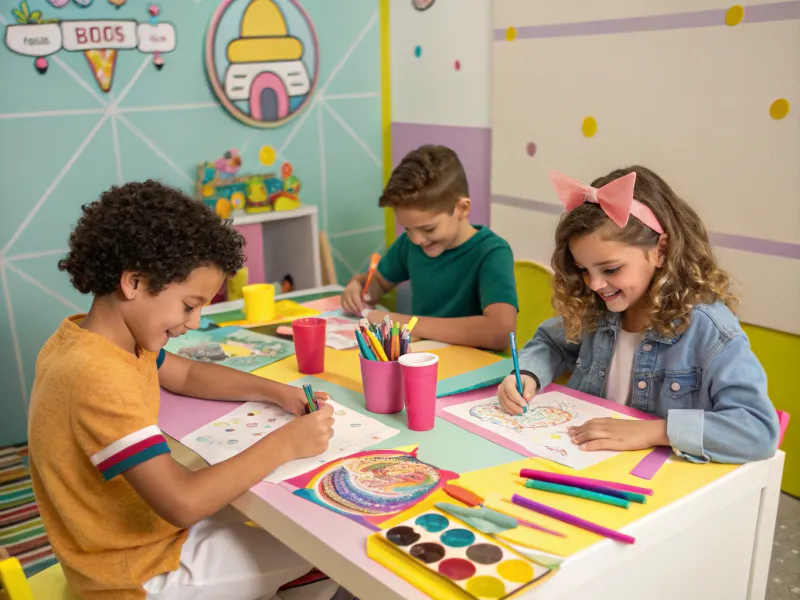
Engaging in crafts allows children to express themselves and develop fine motor skills. It’s a gateway to creativity and problem-solving.
Gli esperti sostengono che il crafting è un mezzo per migliorare l'immaginazione e la destrezza. Incoraggiate i bambini a esplorare materiali e tecniche diverse e lasciate che la loro creatività si scateni.
Crafting isn’t just about the end product; it’s about the process and the joy of making something unique. It’s a wonderful way to spend quality time together, fostering both skills and shared memories.
16. Celebrazioni tradizionali

Nella mia famiglia le feste sono sempre state molto sentite. L'emozione di preparare, decorare e festeggiare insieme era impareggiabile.
Le celebrazioni tradizionali offrono l'opportunità di tramandare le usanze e di creare ricordi duraturi. Riuniscono la famiglia e gli amici in una gioiosa unità.
Gli esperti sottolineano l'importanza delle tradizioni nel rafforzare i legami familiari e l'identità culturale. Offrono un senso di continuità e di appartenenza. Incoraggiate i bambini a partecipare alla pianificazione e all'esecuzione delle attività festive.
Whether it’s baking holiday treats or making decorations, these rituals hold a special place in family history. Celebrate the old and embrace creating new traditions that reflect your family’s unique values.
17. Sessioni di narrazione

Riunirsi per le sessioni di narrazione era una tradizione cara alla mia famiglia. L'arte di tessere racconti, sia che provengano dalla storia che dall'immaginazione, era accattivante.
Storytelling fosters imagination and listening skills. It’s a time-honored way to share wisdom and entertain.
Experts extol storytelling as a powerful tool for language development and cultural preservation. It’s an opportunity to pass down family stories, folklore, or imaginative tales. Encourage children to tell their own stories, fostering creativity and confidence.
Le serate di narrazione possono diventare una tradizione molto amata, che offre sia intrattenimento che valore educativo. Sono momenti in cui l'immaginazione non conosce limiti e i legami familiari si rafforzano.
18. Giardinaggio insieme
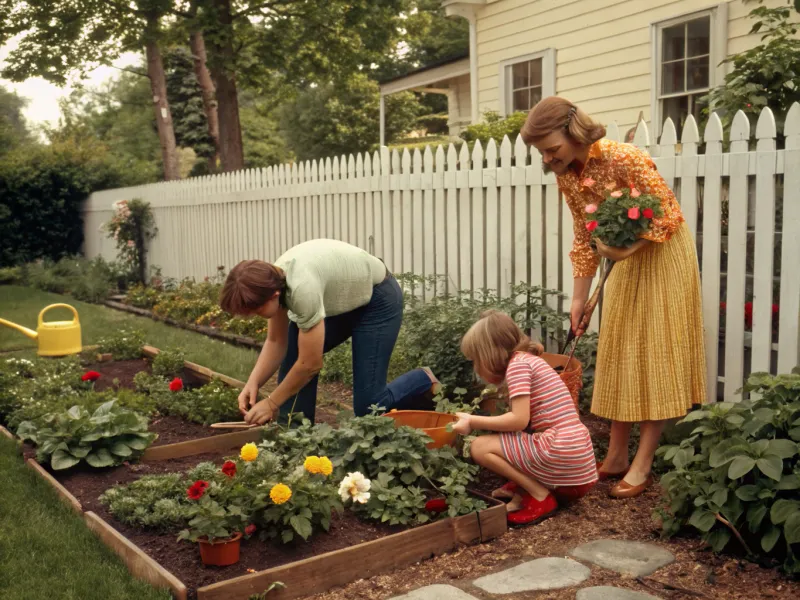
Gardening together teaches children about nature, responsibility, and patience. It’s a hands-on way to connect with the earth and learn about sustainability.
Experts advocate for gardening as an educational and therapeutic activity. It’s an opportunity to teach children about the life cycle of plants and the importance of nurturing.
Encourage kids to plant their own seeds and care for them, witnessing the fruits of their labor. Gardening fosters a sense of achievement and appreciation for nature, and it’s a great way to spend quality time as a family.
19. Musica e danza

Engaging in music and dance offers a fantastic outlet for expression and creativity. It’s a way to bond and have fun together.
Gli esperti sottolineano i benefici della musica e della danza per lo sviluppo emotivo e fisico. Favorisce la fiducia e la coordinazione. Incoraggiate i bambini a esplorare diversi generi musicali e a scoprire il proprio ritmo.
Whether it’s dancing in the living room or singing along to favorite tunes, these activities bring joy and connection. Music and dance can become a cherished family tradition, filled with laughter and unforgettable moments.
20. Gite in campeggio

Il campeggio era un'avventura senza precedenti. L'emozione di montare una tenda, cucinare sul fuoco e dormire sotto le stelle era esaltante.
Le gite in campeggio offrono una pausa dalla routine e l'opportunità di entrare in contatto con la natura. Insegnano ai bambini la fiducia in se stessi e l'apprezzamento per l'ambiente esterno.
Experts recommend camping for its benefits in fostering resilience and teamwork. It’s a chance to unplug and immerse in the simplicity of nature. Encourage children to participate in planning and setting up camp, developing skills and confidence. The shared experiences of outdoor adventures create lasting bonds and memories. Whether it’s a backyard campout or a mountain expedition, camping is a timeless tradition that promotes family togetherness and exploration.
21. Arte della conversazione

Le conversazioni erano il cuore delle mie riunioni di famiglia. Lo scambio di idee e prospettive era un rituale prezioso.
Engaging in meaningful conversations helps children develop communication skills and critical thinking. It’s an opportunity to learn and grow.
Experts stress the importance of conversation in language development and emotional intelligence. Encourage children to express themselves, ask questions, and listen actively. Creating a space for open dialogue fosters understanding and respect. Whether it’s discussing current events or sharing personal experiences, conversations bring families closer together. They are a foundation for strong relationships and intellectual growth.
22. Responsabilità personale
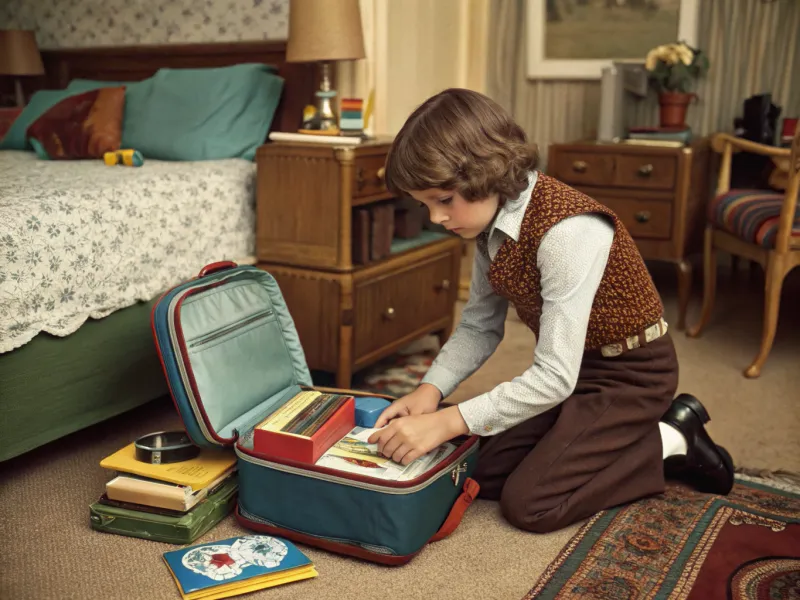
Taking responsibility for one’s actions was a lesson instilled in me from an early age. It was about understanding the consequences and learning from mistakes.
Teaching personal responsibility helps children develop accountability and self-discipline. It’s about empowering them to make informed choices.
Gli esperti sostengono la promozione della responsabilità come mezzo per costruire fiducia e indipendenza. Incoraggiate i bambini a farsi carico dei loro compiti, dai compiti a casa alle faccende domestiche. Fornire una guida e un sostegno, pur consentendo l'autonomia, favorisce la crescita e la maturità. La responsabilità personale è un'abilità preziosa per la vita che prepara i bambini alle sfide che dovranno affrontare in futuro.
23. Routine strutturata
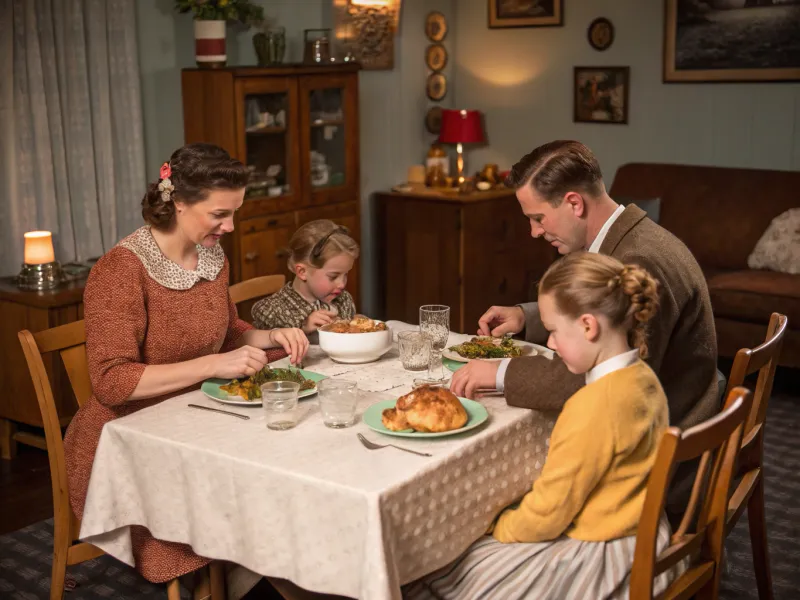
Creare una routine quotidiana coerente aiuta i bambini a sentirsi sicuri e a capire l'importanza della gestione del tempo. Stabilire orari fissi per i pasti, i compiti e il gioco infonde disciplina e prevedibilità.
I genitori scoprono che i bambini prosperano in ambienti in cui sanno cosa aspettarsi, riducendo l'ansia e promuovendo la responsabilità. Questo approccio aiuta anche a sviluppare le capacità di gestione del tempo, fondamentali per la vita adulta.
24. Il valore della pazienza
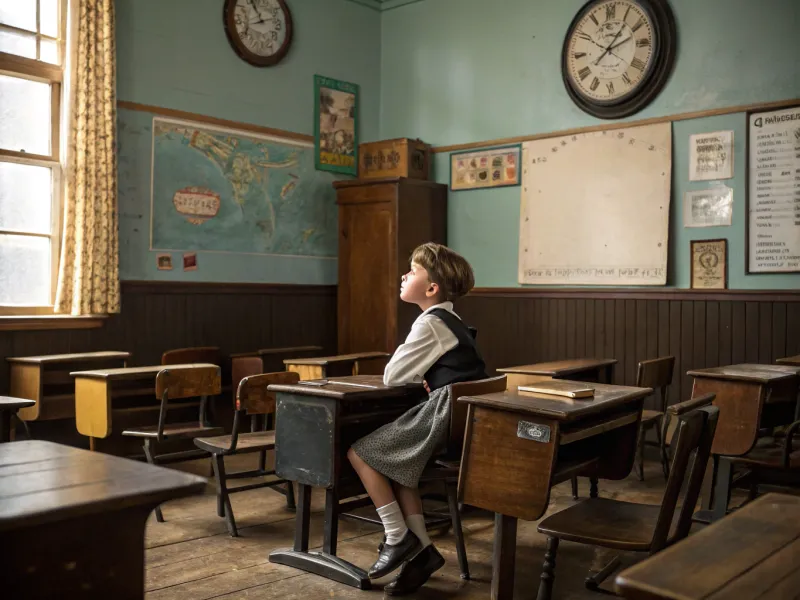
Teaching patience helps children develop self-control and perseverance. It’s about understanding that good things take time.
Gli esperti sottolineano che la pazienza è un'abilità fondamentale per il successo. Incoraggiate i bambini a praticare la pazienza nelle situazioni quotidiane, dall'attesa in fila al lavoro su un compito impegnativo.
It’s about building resilience and understanding the value of effort and time. Patience is a guiding principle that aids in personal growth and achieving long-term goals.
25. Importanza della condivisione
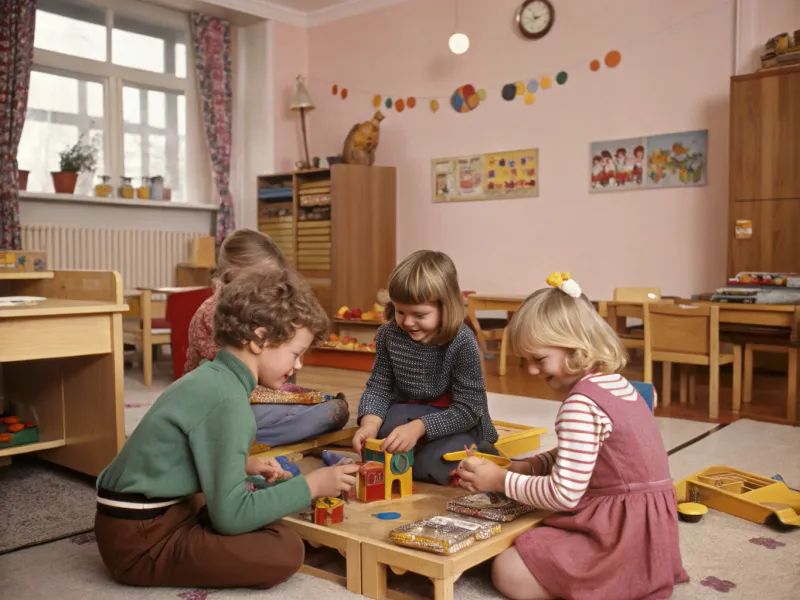
Encouraging sharing helps children develop empathy and social skills. It’s about understanding the joy of giving and receiving.
Gli esperti sostengono l'insegnamento della condivisione come mezzo per alimentare l'empatia e lo spirito di comunità. Incoraggiate i bambini a condividere giocattoli, risorse ed esperienze con amici e familiari.
This practice fosters a sense of belonging and strengthens bonds. Sharing is a fundamental aspect of building compassionate and harmonious relationships. It’s a life lesson that promotes kindness and mutual respect.
26. Rimedi fatti in casa
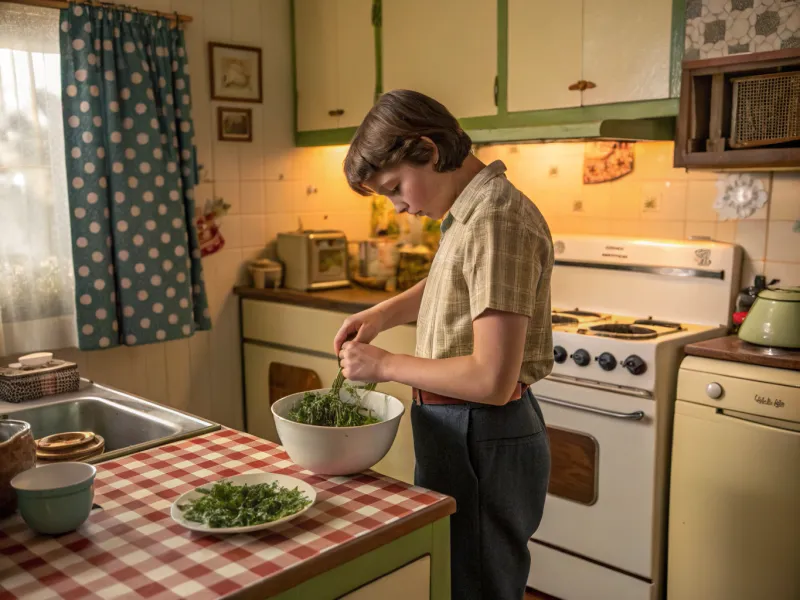
I rimedi fatti in casa erano un punto fermo nella mia famiglia, dalle tisane calmanti ai balsami curativi. Erano rimedi tramandati di generazione in generazione.
Using homemade remedies teaches children about natural healing and self-care. It’s about understanding the benefits of nature’s bounty.
Gli esperti sottolineano il valore dei rimedi tradizionali per promuovere la salute e il benessere. Incoraggiate i bambini a conoscere le erbe e gli ingredienti naturali utilizzati nei rimedi. Questa pratica favorisce l'apprezzamento dei metodi di guarigione naturali e della vita olistica. I rimedi fatti in casa sono una tradizione che combina la saggezza del mondo antico con la cura del corpo. Sono una testimonianza dell'ingegnosità e della creatività delle generazioni passate.
27. Scrivere lettere

In the age of instant messaging, the art of writing letters has almost been forgotten. Yet, there’s something deeply personal and meaningful about putting thoughts onto paper. Whether it’s a thank-you note, a letter to a friend, or a heartfelt message to a grandparent, writing letters teaches children patience, thoughtfulness, and the joy of meaningful communication.
Experts highlight that letter-writing improves literacy, emotional expression, and deeper connections. It fosters a sense of anticipation and appreciation when receiving a handwritten response. Encouraging kids to send letters or even keep a journal instills a love for storytelling and self-reflection—something that no digital message can truly replace.
28. Rispetto dello spazio personale
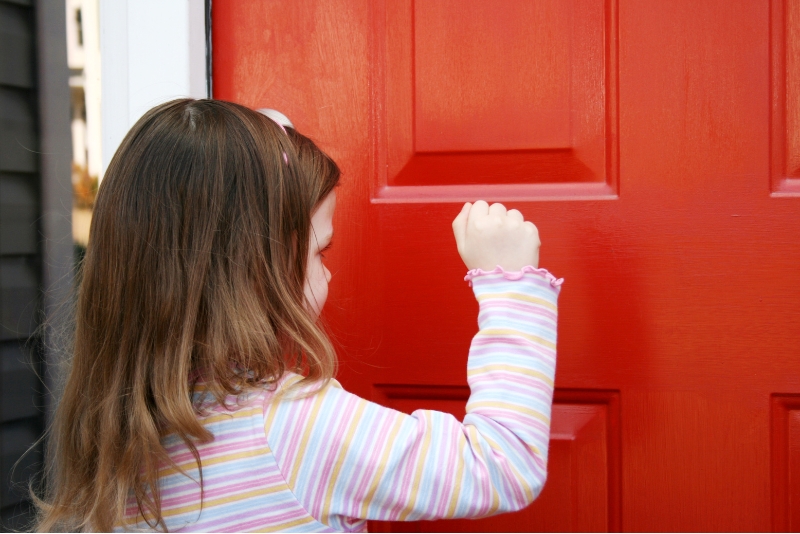
Crescendo, mi è stato insegnato to knock before entering someone’s room e di rispettare quando qualcuno aveva bisogno di stare da solo. Questa semplice ma fondamentale lezione mi ha aiutato a capire i limiti e l'importanza dello spazio personale nelle relazioni.
Teaching children to respect personal space fosters independence, emotional intelligence, and healthy interpersonal skills. Experts emphasize that learning when to give others room to breathe helps kids develop self-awareness and respect for others’ needs. Whether it’s allowing a sibling some quiet time or understanding when a parent is busy, this practice builds stronger, more considerate relationships. Plus, it teaches the balance between togetherness and the need for solitude.

